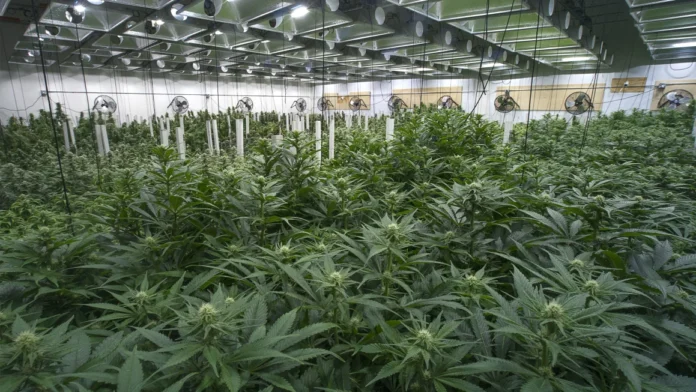DOJ Plans to Reschedule Marijuana as a Lower-Risk Drug
The Biden administration is set to make a historic move by reclassifying marijuana as a lower-risk substance, according to a person familiar with the plans. This significant change acknowledges the medical benefits of marijuana and has broad implications for cannabis-related research and the industry as a whole. The US Department of Justice (DOJ) is expected to recommend that marijuana be rescheduled as a Schedule III controlled substance, placing it in the same category as prescription drugs like ketamine and Tylenol with codeine.
This move was first reported by the Associated Press and Attorney General Merrick Garland plans to submit a draft rule to the White House Office of Management and Budget. However, the standard rulemaking process is lengthy and subject to a public comment period, so it could take months to complete.
Medical Benefits and Current Classification
Marijuana has been categorized as a Schedule I substance, alongside drugs like heroin, bath salts, and ecstasy. Schedule I substances are considered to have no accepted medical use and a high potential for abuse, resulting in strict restrictions. However, marijuana has had an accepted medical use for over 50 years.
The expected recommendation to reschedule marijuana comes after a thorough review by the US Food and Drug Administration (FDA) at the direction of President Joe Biden. Last fall, the FDA recommended rescheduling marijuana based on three criteria: a lower potential for abuse compared to substances in Schedules I and II, a currently accepted medical use in the US, and a low or moderate risk of physical dependence in people who abuse it. The National Institute on Drug Abuse also concurred with this recommendation.
Implications and Potential Changes
The reclassification of marijuana could have significant implications for various aspects related to the drug. Currently, 24 states, two territories, and Washington, DC have legalized cannabis for adult recreational use, and 38 states allow medical use of cannabis products. Rescheduling marijuana could open up more avenues for research, ease punitive criminal consequences, and allow cannabis businesses to have more freedom in banking and taxation.
However, it is important to note that rescheduling marijuana will not resolve the federal-state conflict. While states with medical marijuana programs have some federal protections in place, recreational marijuana would still be illegal under federal law. The manufacture, distribution, and possession of recreational marijuana could still be subject to enforcement and prosecution regardless of the state’s legality.
It is worth mentioning that the 2018 Agriculture Improvement Act, also known as the Farm Bill, decontrolled hemp and hemp-derived cannabidiol (CBD) and removed it from the definition of marijuana under the Controlled Substances Act. However, the FDA’s evaluation of marijuana did not address products containing plant-derived CBD.
In conclusion, the potential rescheduling of marijuana as a lower-risk drug by the DOJ is a significant development that recognizes the medical benefits of the drug. While it could have positive implications for research and the cannabis industry, it is important to consider the ongoing federal-state conflict and the limitations of rescheduling. This is a developing story, and further updates are expected.

